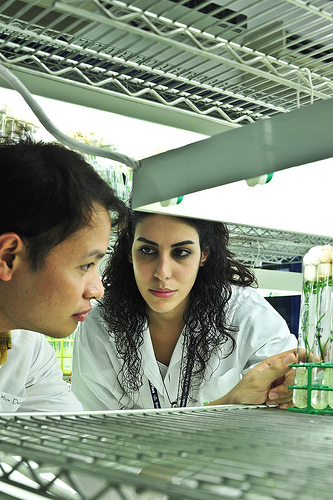Mostly, I recommend bypassing the climate science “debate” altogether. There’s no actual debate so even debunking it gives it undeserved credence. But that’s just it: doubt and denial are more than just states of mind; their perpetuation is strategic. An eye dropper of doubt has proven more potent in stalling action on climate change than an ocean of ironclad scientific warnings.
Sometimes it’s good to call attention to this kind of strategy in order to undercut its power. Because we do wind up wasting lots of time and energy on science denial.
In my line of work, there’s even an obsession with measuring it. I’m talking about polling voters’ “belief” in climate change. John Oliver described this practice best:
“It doesn’t matter! You don’t need people’s opinions on a fact. You might as well have a poll asking if 15 is bigger than 5, or ‘do owls exist?’, or ‘are there hats?’…The only accurate way to report that 1 in 4 Americans are skeptical of global warming is to say that a poll finds that 1 in 4 Americans are wrong about something.”
But we’re all vulnerable to the drumbeat. Now, a new study shows that climate change denial is taking a toll on scientists—and science. And really, instead of climate denial we should always call it what it really is: science denial.
Here are at least three ways denial derails scientists:
First, scientists are getting sidetracked by science denial campaigns. “Scientists spend time and resources addressing denialists’ debunked claims in a way the scientific community has never done,” said Stephan Lewandowsky, a cognitive scientist at the University of Bristol in England and lead author of the new study, published in the journal Global Environmental Change. It’s distracting and taking up time on defense that should go toward new advances.
Second, when scientists feel compelled to go on the defensive and spend time refuting denialist theories, they not only add credence to false claims, giving them air time, they often begin to adopt the language and frames of the science deniers, thus reinforcing them. For example, science deniers recently fixated on a supposed pause or hiatus in the world’s warming in the last decade. “They are rebutting the idea of a pause, but to do so, they call it a pause,” Lewandowsky said. “Scientists have adapted the framing that is being set by contrarians even when they are rebutting it.”
Finally, and perhaps most troubling, scientists feel significant pressure to hold back. The study found that they often downplay future climate risks to avoid being labeled “alarmist” by vocal deniers.
Lewandowsky and the other researchers hope that knowing the impacts that science denier messages can have on their psyches and their work “will empower climate scientists to resist this subtle seepage.”

